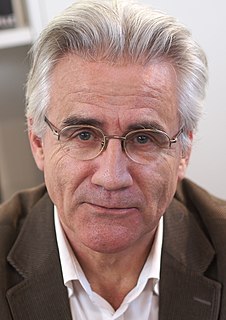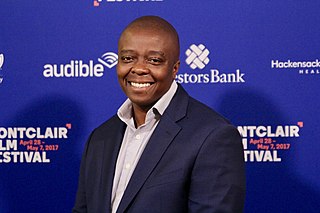A Quote by Andre Comte-Sponville
Necessary, since every moment in our lives is marked by death, like a shadow from another realm, it appear to us like a vanishing point for everything. How can one meditate on live without meditating too on its brevity, its precariousness, its fragility?
Related Quotes
Since the death instinct exists in the heart of everything that lives, since we suffer from trying to repress it, since everything that lives longs for rest, let us unfasten the ties that bind us to life, let us cultivate our death wish, let us develop it, water it like a plant, let it grow unhindered. Suffering and fear are born from the repression of the death wish.
But how to know the falsity of death? How can we know there is no death? Until we know that, our fear of death will not go either. Until we know the falsity of death, our lives will remain false. As long as there is fear of death, there cannot be authentic life. As long as we tremble with the fear of death, we cannot summon the capacity to live our lives. One can live only when the shadow of death has disappeared forever. How can a frightened and trembling mind live? And when death seems to be approaching every second, how is it possible to live? How can we live?
My brethren, let me say, be like Christ at all times. Imitate him in "public." Most of us live in some sort of public capacity-many of us are called to work before our fellow-men every day. We are watched; our words are caught; our lives are examined-taken to pieces. The eagle-eyed, argus-eyed world observes everything we do, and sharp critics are upon us. Let us live the life of Christ in public. Let us take care that we exhibit our Master, and not ourselves-so that we can say, "It is no longer I that live, but Christ that lives in me."
Now death is uncool, old-fashioned. To my mind the defining characteristic of our era is spin, everything tailored to vanishing point by market research, brands and bands manufactured to precise specifications; we are so used to things transmuting into whatever we would like them to be that it comes as a profound outrage to encounter death, stubbornly unspinnable, only and immutably itself.
I hope that audiences understand that there is a precariousness to black lives in this country that we need to address, that there has always been a precariousness to black lives in this country that we need to address. In fact, our country is built on the precariousness of black lives, the disposability of black lives.
What poetry is asking us to accept can be difficult. Our proximity to our mortality, the fragility of our existence, how close we live in every moment to nameless abysses, and the way language itself is beautifully, tragically, thrillingly insufficient...these are some of the engines that drive the poem. It's natural to want to turn away from these things. But we have to face them, as best we can, at least sometimes. Poetry can help us in that nearly impossible work.
All men and women are born, live, suffer and die; what distinguishes us one from another is our dreams, whether they be dreams about worldly or unworldly things, and what we do to make them come about... We do not choose to be born. We do not choose our parents. We do not choose our historical epoch, the country of our birth, or the immediate circumstances of our upbringing. We do not, most of us, choose to die; nor do we choose the time and conditions of our death. But within this realm of choicelessness, we do choose how we live.
We do not choose to be born.We do not--most of us, choose to die, or the times or conditions of our death. But within all this realm of choicelessness, we do choose how we shall live--Courageously or in cowardice, Honorably or dishonorably, With purpose or adrift. We decide what is important and what is trivial. What makes us significant is what we DO, Or REFUSE TO DO. WE DECIDE and WE CHOOSE--and so we give definition to our lives.
The way we deny death says something about how we live our lives, doesn't it? At least in Sweden or Scandinavia, you don't have to search further back in time than maybe three generations to find another way to relate to death. People then had a different, closer relationship with death; at least it was like that in the countryside.
Human beings are very unbalanced and prone to go off on tangents. In every area of life- with too great emphasis on one thing, leaving out another important thing altogether. None of us will ever be perfectly balanced in our spiritual lives, our intellectual lives, our emotional lives, our family lives, in relationships with other human beings, or in our business lives. BUT WE ARE CHALLENGED TO TRY, WITH THE HELP OF GOD. We are meant to live in the scriptures.
For most of us, karma and negative emotions obscure the ability to see our own intrinsic nature, and the nature of reality. As a result we clutch on to happiness and suffering as real, and in our unskillful and ignorant actions go on sowing the seeds of our next birth. Our actions keep us bound to the continuous cycle of worldly existence, to the endless round of birth and death. So everything is at risk in how we live now at this very moment: How we live now can cost us our entire future.








































